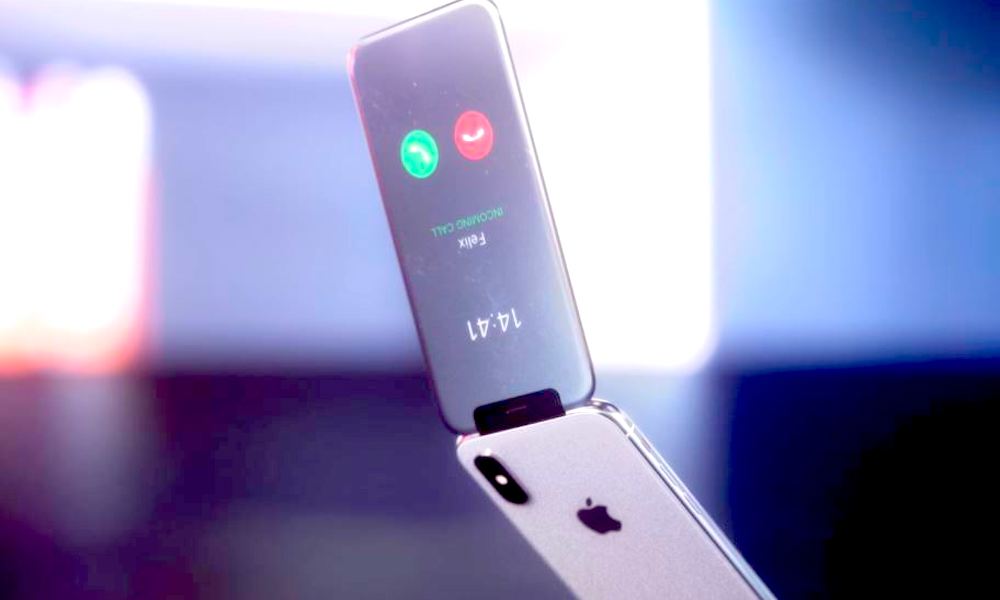Apple’s Decision to Wait Until 2020 for 5G iPhones Could Backfire
 Credit: Curved/Labs
Credit: Curved/Labs
Toggle Dark Mode
Casting doubt on reports that Apple’s actively testing 5G-compatible iPhones ahead of a possible fall 2019 debut, a new report published this week by Bloomberg News asserts that the company is instead planning to “hold off” until “at least 2020” before offering its first 5G-compatible iPhone model.
Citing sources with knowledge of the imminent plans, the publication notes that Apple’s decision to delay the next generation of blazingly-fast 5G wireless service in its next iPhone models mimic the company’s same slowness in adopting 3G and 4G LTE, respectively.
“As with 3G and 4G, the two previous generations of mobile technology, Apple will wait as long as a year after the initial deployment of the new networks before its main product gets the capability to access them,” Bloomberg’s sources, who requested anonymity to discuss their knowledge on the record, confirmed.
What’s the Deal?
With regards to the company’s decision to delay 3G until its second-generation iPhone 3G (2008) — despite AT&T’s network being sufficiently built-out over a year prior — Bloomberg’s sources noted that Apple delayed support for these critical upgrades because it was able to “accurately predict” that the first versions of smartphones offered by its competitors would suffer from problems like poor coverage.
But while that argument may be acceptable according to circa 2008 standards of mobile network speed and infrastructure, it’s worth pointing out that the jump from 4G to 5G will represent a much bigger upgrade to speed, latency and availability — in comparison to the jump from 2G to 3G, or 3G to 4G.
And in today’s highly competitive market, that unfortunately makes Apple’s decision to hold-off a risky one — primarily (if not entirely) because the company’s move to hold-off will essentially pave the way for its rivals (i.e., Samsung) to try and woo consumers into their court with 5G-compatible devices like the Galaxy S10, which is expected sometime during Q1 2019.
However, it’s also worth pointing out that Apple’s decision to “sit on the sidelines” could be related to the company’s ongoing legal warfare with its former modem supplier, Qualcomm, who’s arguably the current front-runner in their bid to develop and deploy 5G-enabled chips in mobile devices.
In the wake of this legal turmoil, Apple has reportedly shifted its reliance over to Intel for 5G chips however Intel has already confirmed that it won’t have these 5G chips available in time for 2019 phones.
While Intel and Qualcomm aren’t the only firms capable of building 5G modems — as Bloomberg notes, both Huawei and Samsung also have the capacity — Apple is unlikely to use chips built by its competitors (mainly to avoid the likelihood of supply constraints that may effect the some ~200 million iPhones built annually.)
A Year Late and a Dollar Short?
Whatever Apple’s justification for holding-off on 5G by at least another year, some analysts fear the jump from 4G to 5G is so significant that the feature may become a deciding factor for high-end smartphone consumers wanting the latest and most capable devices.
Companies like Samsung plan to have 5G smartphones available by early next year, with major Asian OEMs including Oppo and Huawei expected to follow in late-2019 with their first 5G-compatible offerings.
“Apple has always been a laggard in cellular technology,” said Gartner analyst, Mark Hung, who noted that “They weren’t impacted in the past, but 5G is going to be much easier to market.”
Ultimately, Hung cautions that if Apple waits “beyond 2020” to deploy 5G in an iPhone, then “they’ll be impacted” primarily by increased competition.
[The information provided in this article has NOT been confirmed by Apple and may be speculation. Provided details may not be factual. Take all rumors, tech or otherwise, with a grain of salt.]






